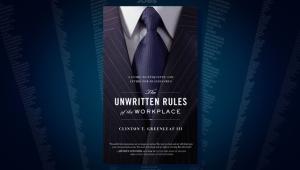4 Reasons You Never Hear Back After A Job Interview
Have you ever submitted an application and your perfectly tailored résumé for a job you knew you'd be perfect for, and never got any sort of acknowledgment of receipt? Can you remember a time when you left an interview thinking you aced it, only to never hear back?
You're not alone.
"One of the biggest complaints we hear from job seekers is that employers don't respond to them," says Sara Sutton Fell, CEO of FlexJobs, in a recent LinkedIn post. "Not hearing back after sending in a job application is one thing, but not hearing back after going through an actual interview? That's just plain rude. And apparently it happens pretty often, based on the 159 comments (and horrible stories!) we received on one of our blog posts about the topic."
If employers take the time to vet candidates and conduct a series of interviews, why can't they take a couple minutes to let applicants know they didn't get the job?
Sutton Fell and her team at FlexJobs talked to recruiters and hiring managers to uncover the real reasons they sometimes don't follow up. "We got some pretty surprising and candid responses," she says. "And while they might not make job seekers feel much better about the situation, it'll at least offer some insight into one of the most unfortunate and disheartening experiences in a job search."
Here are four of the most common reasons:
1. They chicken out.
We all know people who will avoid confrontation or disappointment at all costs, and hiring managers are no exception, Sutton Fell says. But they shouldn't be exempt. "The thought of emailing or calling someone to tell them that they have not gotten the job is just too big of a burden to bear, especially after they've met and spoken to the person. So they just procrastinate on the task endlessly, or until it's just been too long and they think, 'the candidate has moved on anyway, no need to bring up bad news.'" This is unprofessional behavior, but it happens all the time.
2. Telling an interviewee they didn't get the job is a tricky legal limbo to walk.
"We live in a litigious society, and hiring managers want to stay on the right side of the employment law," she explains. Candidates who aren't hired will often ask the employer for feedback on their job application or interview performance. "Sometimes, hiring managers will opt to not respond at all, rather than opening themselves up to potential liability through inappropriate feedback," Sutton Fell says.
3. The job isn't available after all.
Sometimes employers start the recruiting process and interviewing external candidates, only to realize someone internally is the perfect fir for the job. Or, halfway through the process they learn that the funding for the position has come into question. "There are a lot of 'structural' reasons that a job opening might fall through that have nothing to do with your quality as a candidate," she says. But it's no excuse for not following up.
4. Some people are just rude.
Sutton Fell says most hiring managers are "responsible, upstanding, and kind people," but some are just plain rude. They don't want to "waste any more time" on a candidate they don't intend to hire, so they move on. "The silver lining? You probably wouldn't want to work for that person anyway."
Sutton Fell says employers who fail to respond to job candidates "are incredibly short-sighted because it gives [their] company a bad name — not just in hiring, but in general."





 discovered I wasn’t a very effective person. Then something worse happened. Even when I tried to incorporate some of the seven habits into my style, my less effective habits got in the way. However, I quickly discovered that none of this mattered. It wasn’t about me becoming highly effective; it was about my candidates.
discovered I wasn’t a very effective person. Then something worse happened. Even when I tried to incorporate some of the seven habits into my style, my less effective habits got in the way. However, I quickly discovered that none of this mattered. It wasn’t about me becoming highly effective; it was about my candidates.